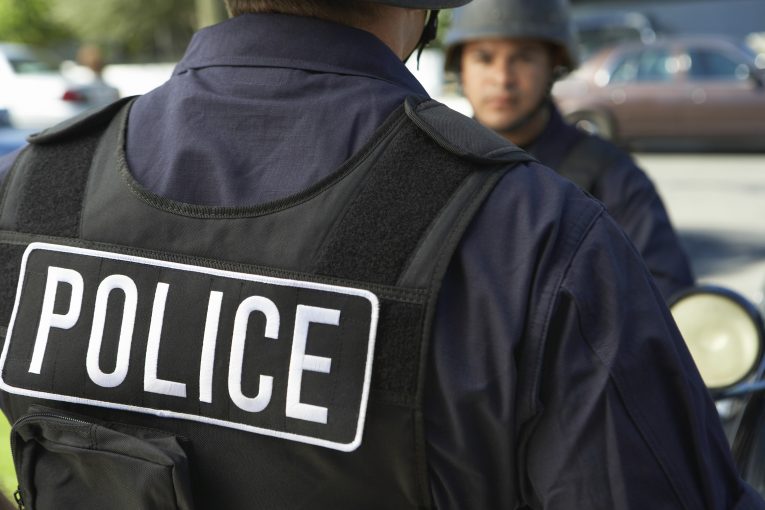

By Crescenzo Vellucci
Vanguard Sacramento Bureau Chief
FONTANA, CA – California peace officers receiving new training under California’s Commission on Peace Officer Standards and Training (POST) are being urged to turn over a new investigatory leaf, according to a report by the Associated Press.
In short, they can still lie to suspects, but within reason. A nearly $1 million lawsuit may be sparking changes.
The so-called science-based POST training “does not allow deceptive and aggressive, psychologically manipulative techniques. Instead, it favors a more empathetic, humane approach. Training programs that teach deception, such as lying about DNA results or an accomplice’s cooperation, will not be certified by the state, said spokesperson Meagan Poulos to the AP.
Police in Fontana are the best example, said POST, of what not to do.
In “the box” — reported by AP as a “cramped, anxiety-inducing room where police conduct interrogations, pushing and probing for a confession or at least case-solving information – Fontana police detectives grilled Thomas Perez Jr. in August 2018,” encouraging him to admit to killing his missing father, claiming they “recovered the body (and suggested the family dog, Margosha, would be euthanized because of Perez’s actions).”
After 17 hours, added AP, “Perez attempted to kill himself in the interrogation room and finally confessed. But the confession unraveled when police discovered that his 71-year-old father, Thomas Perez, Sr., wasn’t dead, but was at Los Angeles International Airport awaiting a flight.”
While the department maintains it did nothing illegal, the trickery cost city taxpayers about $900,000 to settle a civil rights lawsuit — giving more reason for law enforcement to change the way officers conduct interrogations, said AP.
“Those are horrible tactics. You don’t tell someone, ‘We’re going to impound your dog if you don’t tell us the truth,’” said Dennis Gomez, a former Orange Police Department officer and the new owner of Behavioral Analysis Training, or BATI, in Tustin. “This is very extreme. … I was completely shocked (by the Fontana interrogation) and I was disgusted by it,” wrote AP.
BATI said it has trained 40,000 officers throughout California, but while some Fontana officers took the BATI course, detectives involved in questioning Perez did not go through the training, he said.
“This is still happening and I don’t know why,” Gomez said in the AP report. “(We teach) do not go through these aggressive tactics, do not lie, do not deceive, do not, do not, do not.”
“It’s like if one aspirin is good, four would be awesome,” said El Dorado County District Attorney Vern Pierson, a leading reformer in California. “They’re well-intentioned. They think they’re trying to solve a case and they have been trained it’s acceptable to lie and be aggressive and, the fact is, it’s not.”
Pierson told AP, “We need to take a pause and say maybe we shouldn’t be telling officers to lie to people to get them to tell you the truth,” and said they instructed “prosecutors to reject any case primarily built on confessions obtained through deceptive, threatening or psychologically manipulative interrogations.”
As AP notes, police officers in the U.S. have been told that it is legal to deceive suspects, and in the 1969 Supreme Court ruling Frazier v. Cupp, “held that deception alone wasn’t a good enough reason to throw out a confession. That ruling was supported by lower courts in various states and taught in interview and interrogation classes from coast to coast.”
“Armed with the court decision, experts say, police were free to deceive and psychologically manipulate suspects, increasing the chance of getting a false confession. Research shows that one-fourth of the cases exonerated through DNA testing involved people who confessed to crimes they didn’t commit, according to a 2012 paper by Daniel Harkins in the Southern Illinois University Law Journal,” wrote AP.
“When your defenses are worn down, when you’re cognitively and emotionally depleted, when police lie … it creates this perfect storm where confession seems to be the best idea at the moment,” said Hayley Cleary, an expert in police interrogations at Virginia Commonwealth University in Richmond, Virginia.
“That’s the fundamental problem in America, accusatory-style interrogation. They are trained to go in looking for a confession, confirmation bias,” Cleary said. “If you’re convinced this guy is guilty and he gives you information that conflicts with his guilt, you’re going to ignore their denials.”
The AP reported that “evidence of false confessions can be found as far back as the Salem witch trials, researcher Saul M. Kassin wrote in 2009.
According to Kassin, from the 19th century through the 1930s, police employed the “third degree,” physically assaulting suspects and using psychological torture — including the deprivation of food — to draw out the “truth.”
Kassin, said AP in its story, noted “the technique began to wane in the 1960s and was virtually nonexistent by 1986. Nowadays, police officers are trained, for the most part, not to inflict physical harm or deprive subjects of their physical needs, such as bathroom breaks.”
“But aggressive, confrontational, manipulative techniques by detectives often feigning empathy are still taught, reformers say. Also taught are what reformers call ‘pseudoscience,’ in which interrogators attempt to determine who is lying based on body language, word choice and behavioral cues, such as avoiding eye contact, giving a delayed response or not proclaiming their innocence ardently enough,” wrote AP.
“Interrogators confront the suspect with accusations of guilt … that are made with certainty and often bolstered by evidence, real or manufactured, and refusal to accept alibis or denials,” Kassin wrote, adding for the AP story “false confessions occur when a person develops such a profound distrust of their own memory that they become vulnerable to the influence of an interrogator.”
AP quoted Raul Saldana, a retired Hermosa Beach detective sergeant, who claims “lying to suspects within the confines of the law is a valuable tool for investigators already hobbled by such requirements as advising suspects of their Miranda right to remain silent.
“We’re just evening the playing field. Sometimes you have to get creative. You do what you have to do against bad people. … Sometimes you’ve got to fudge.”
But, in California and six other states, AP noted while “lying to adults remains legal,” lawmakers have “made it illegal for police to lie in any way to juvenile suspects, who are deemed more impressionable than adults.”
However, POST, the state agency in charge of certifying police officers and their training, claims its new “interview and interrogation techniques…do not rely on deception or dishonesty.
“Presenters who teach behavioral analysis — such as BATI — that relies on such things as body language to gauge deception also must submit proof to POST that this technique is supported by scientific evidence and doesn’t lead to false confessions,” writes AP.
The changes by POST “means that more officers will be taught and subsequently use more ethical techniques,” said POST to the AP, adding, “There has been an urban myth within policing for decades that the only way to obtain information is to use interviewing tactics that employ pseudoscience and psychological coercion, and that urban myth is finally being debunked,” he said.